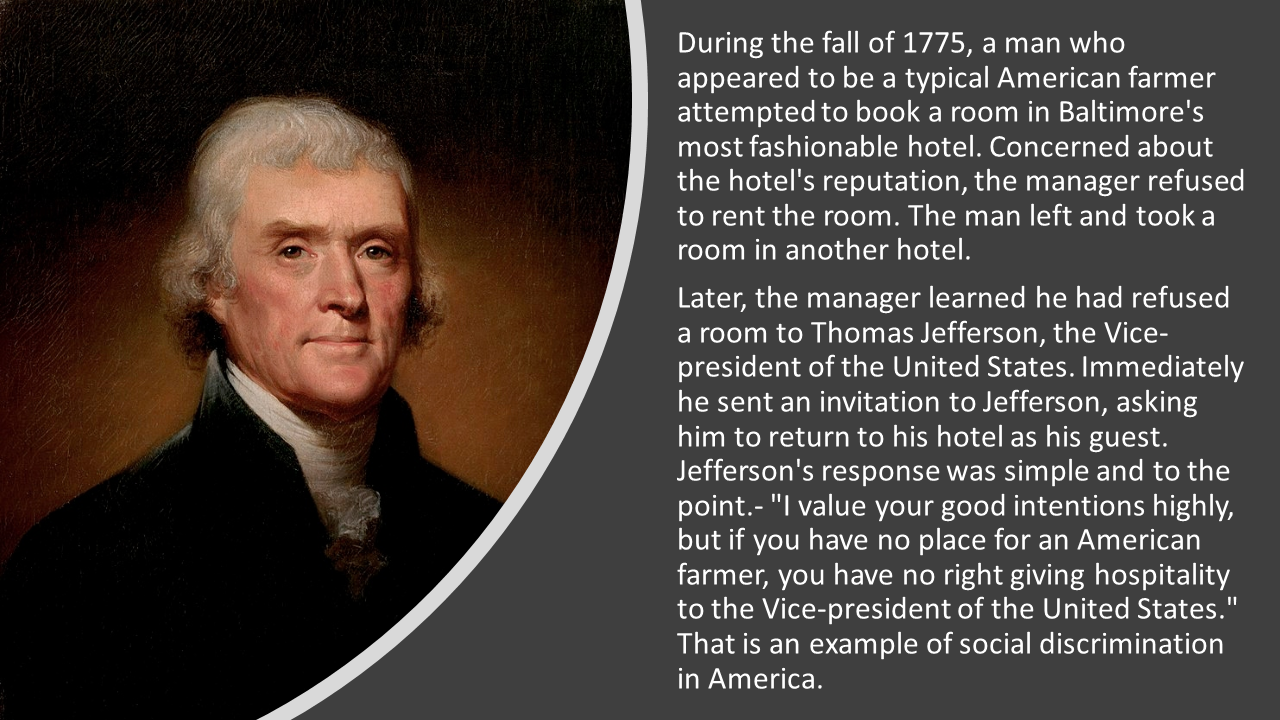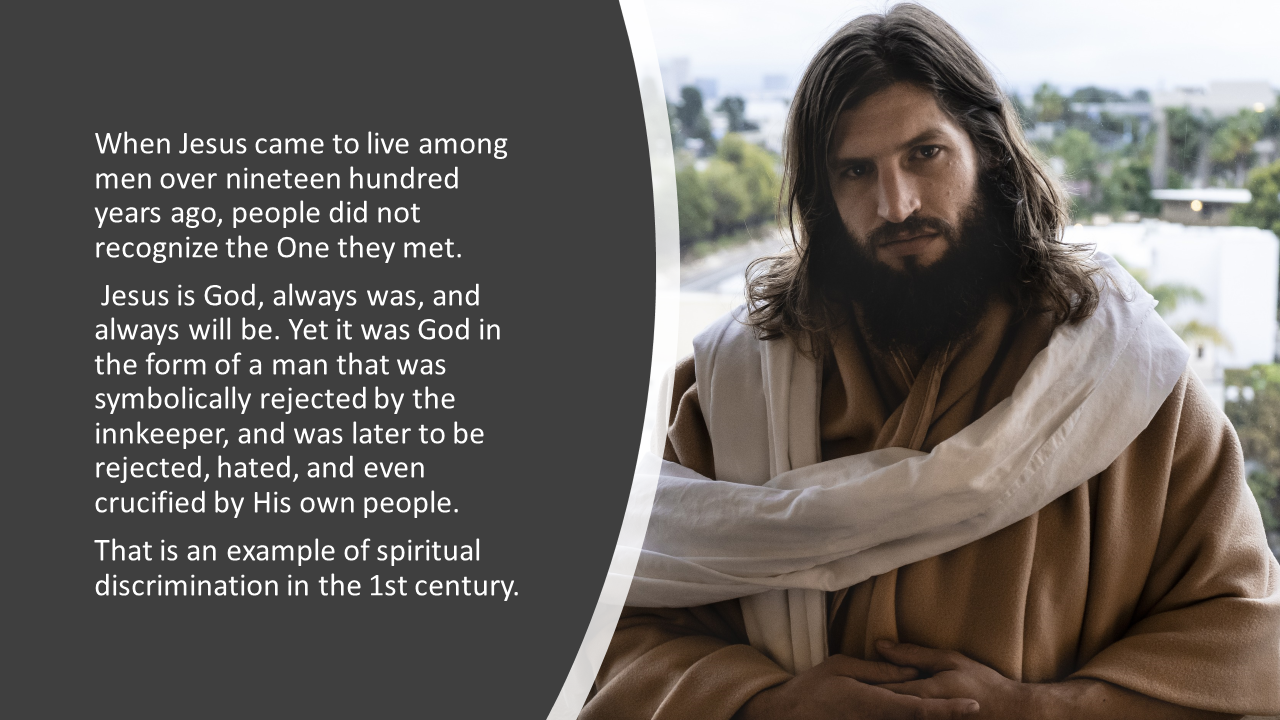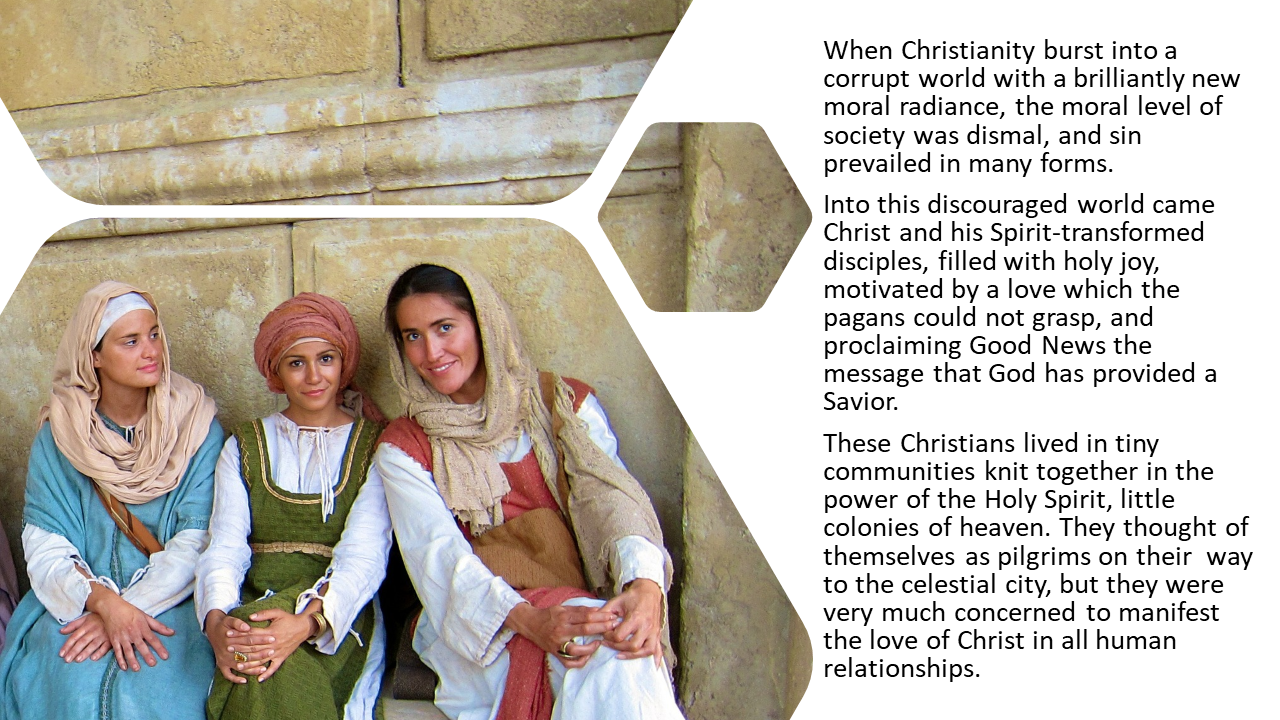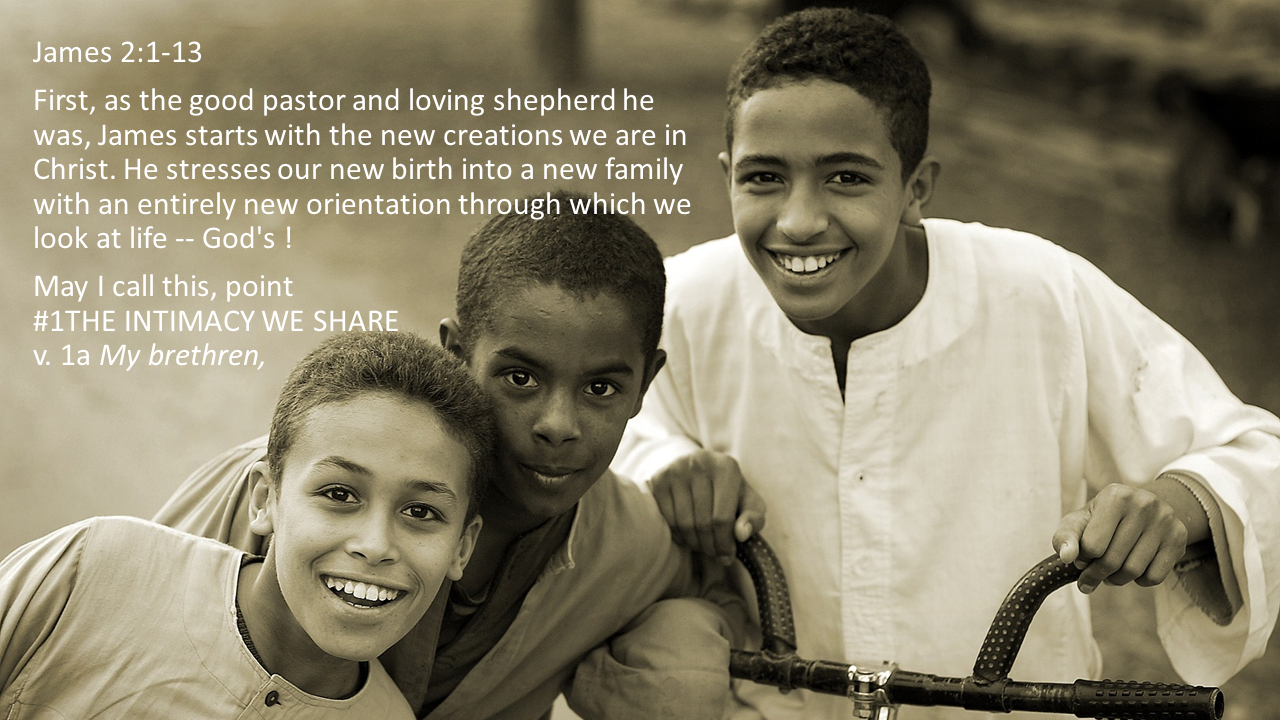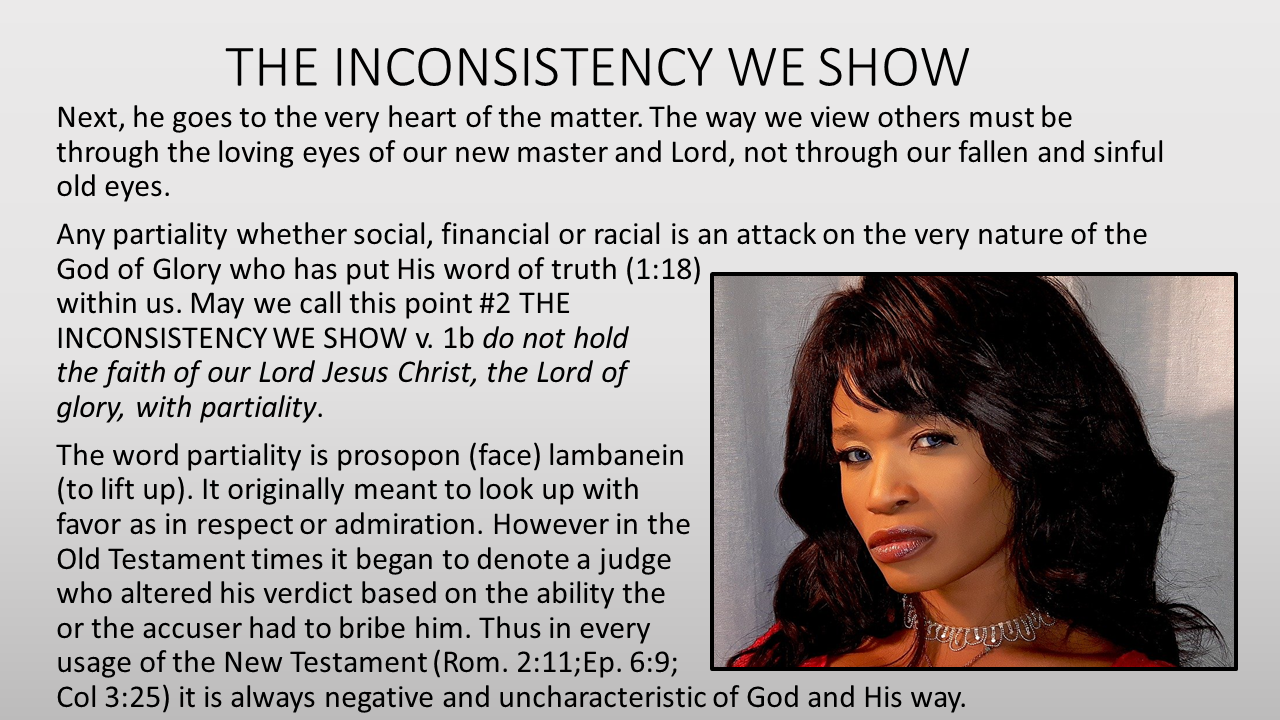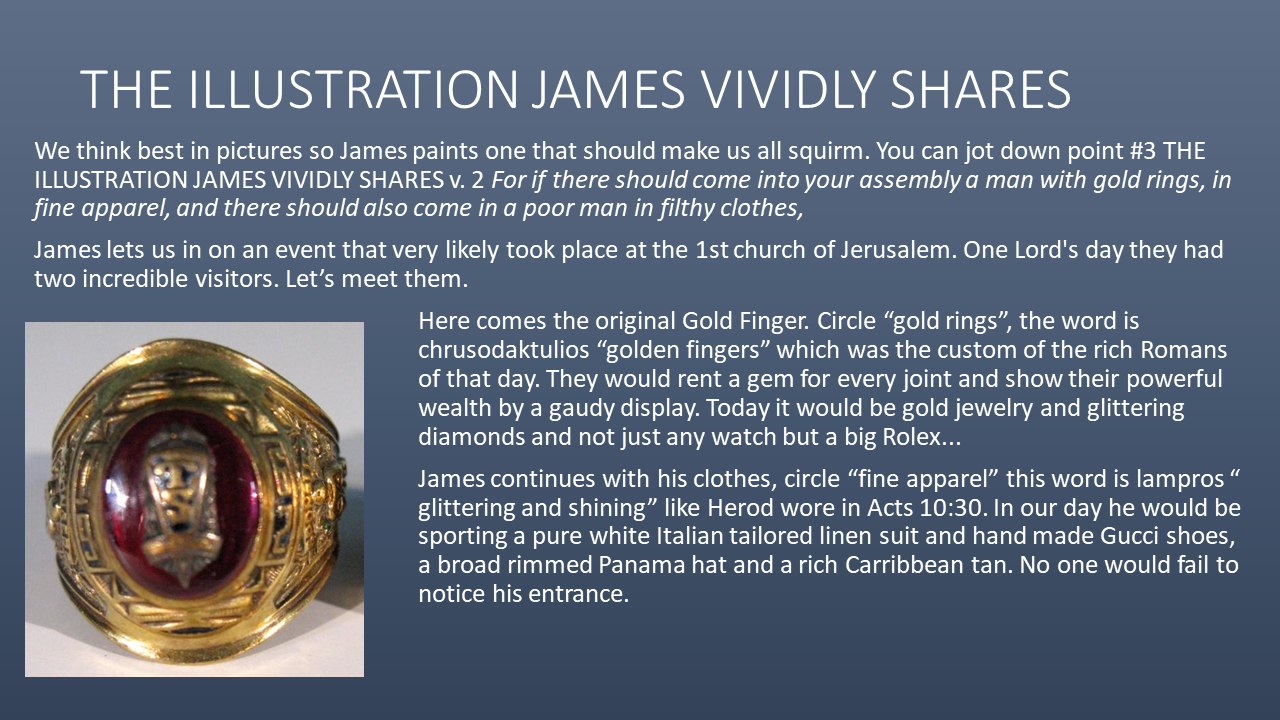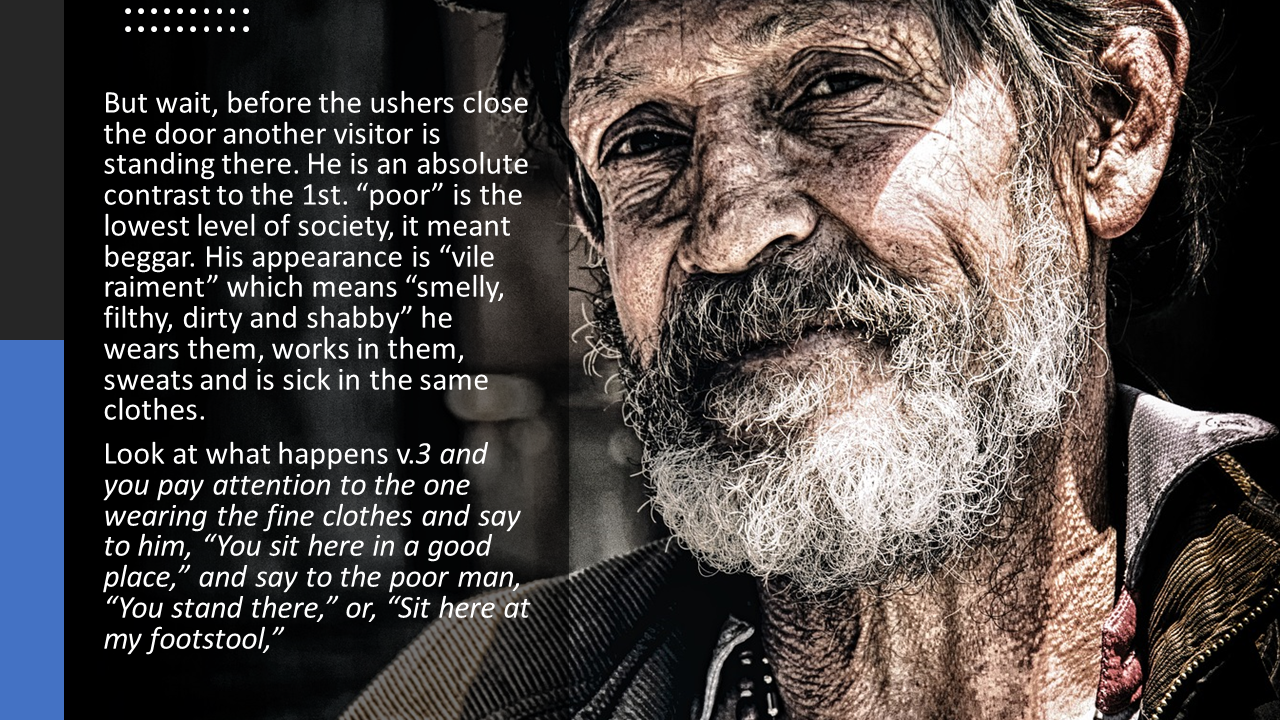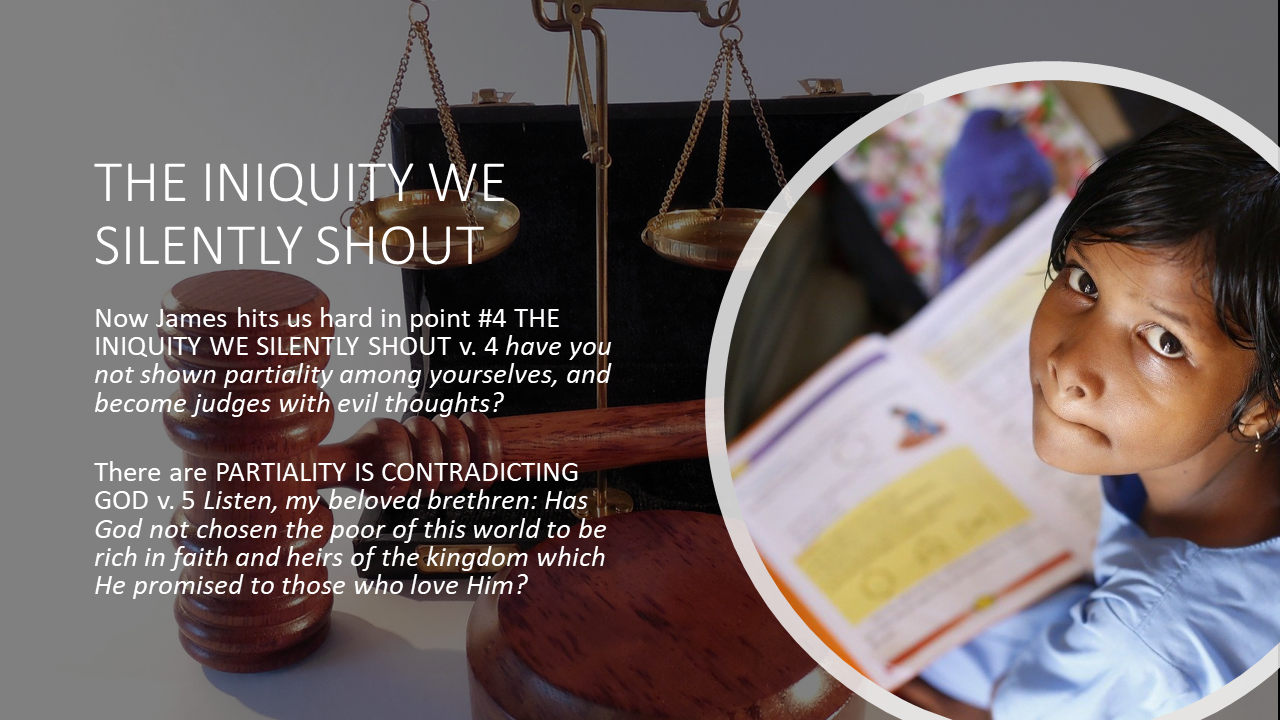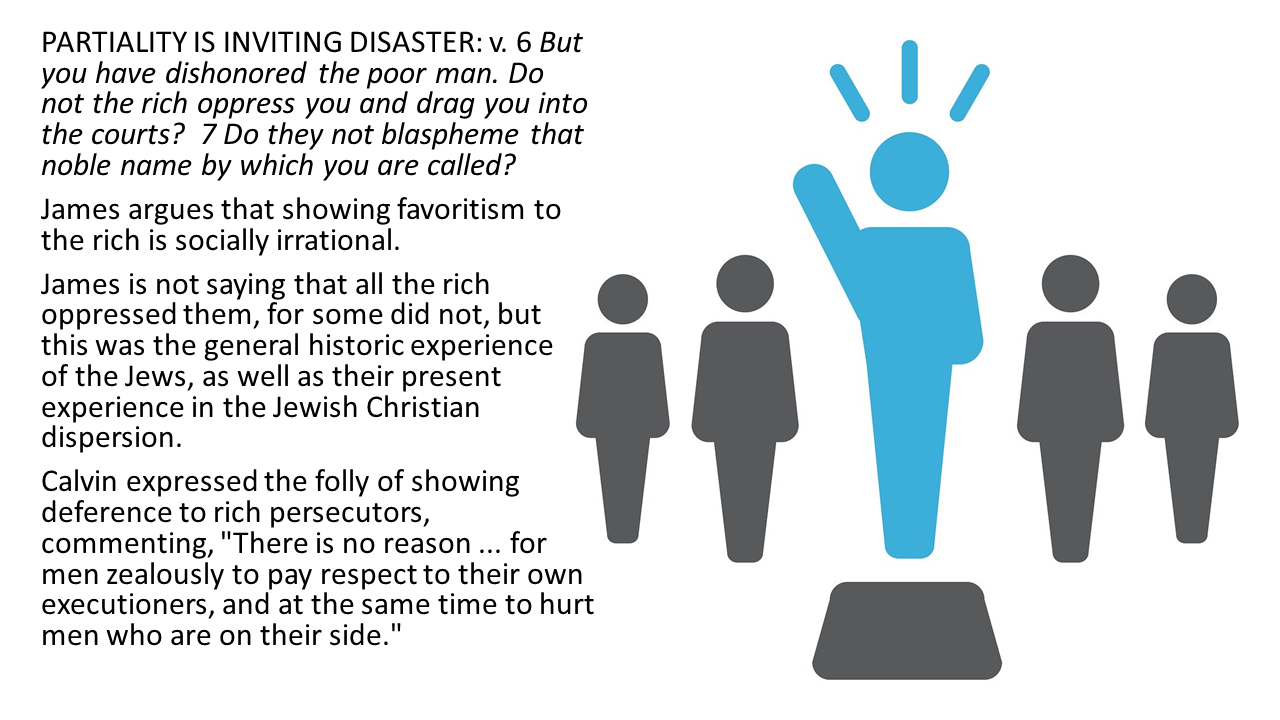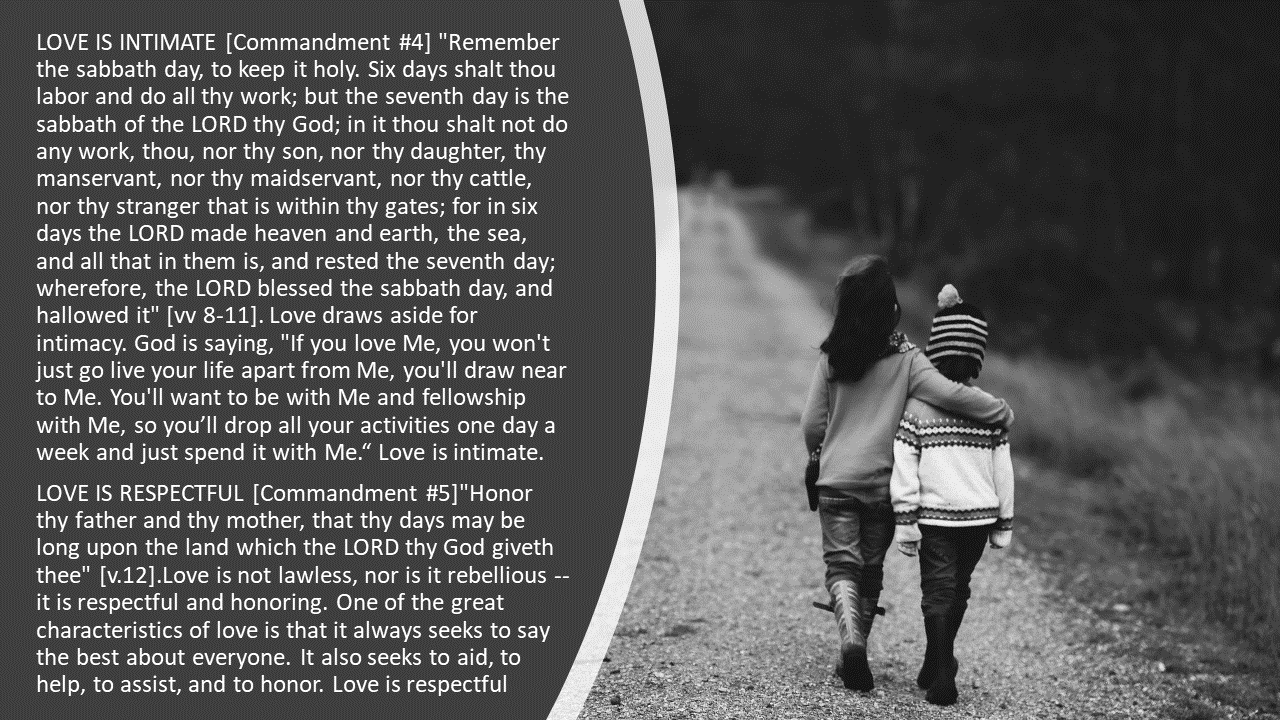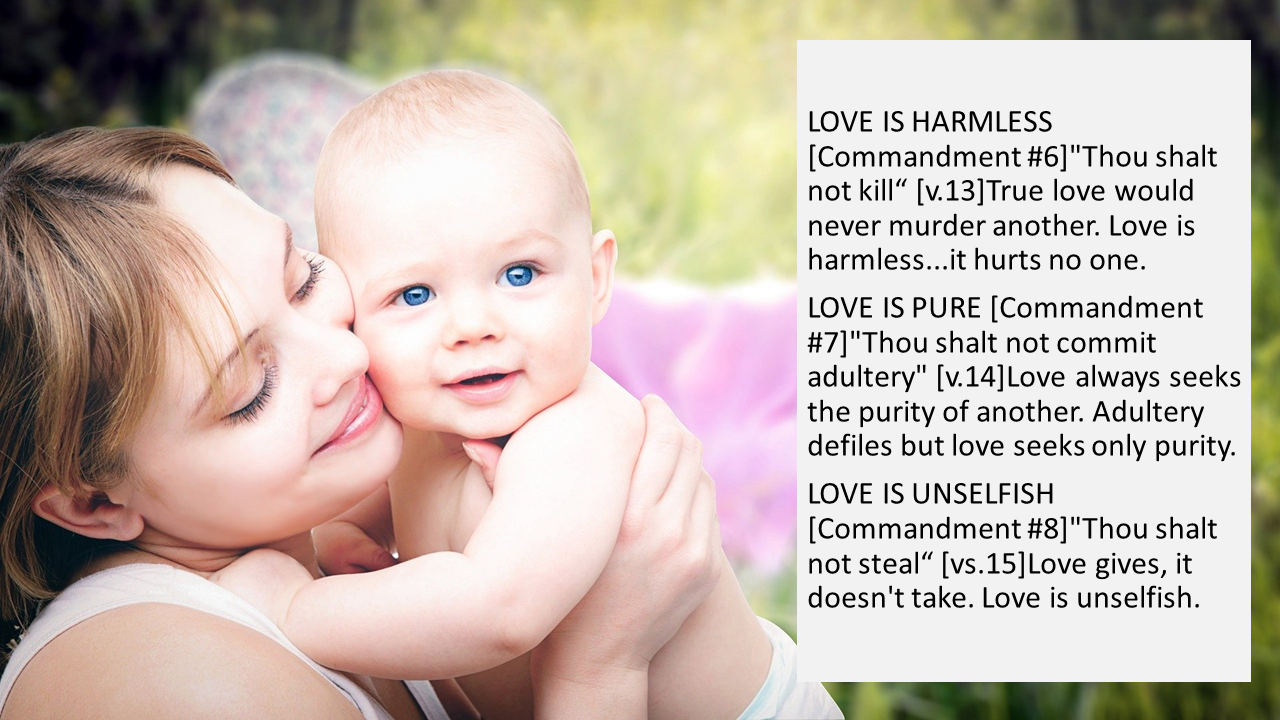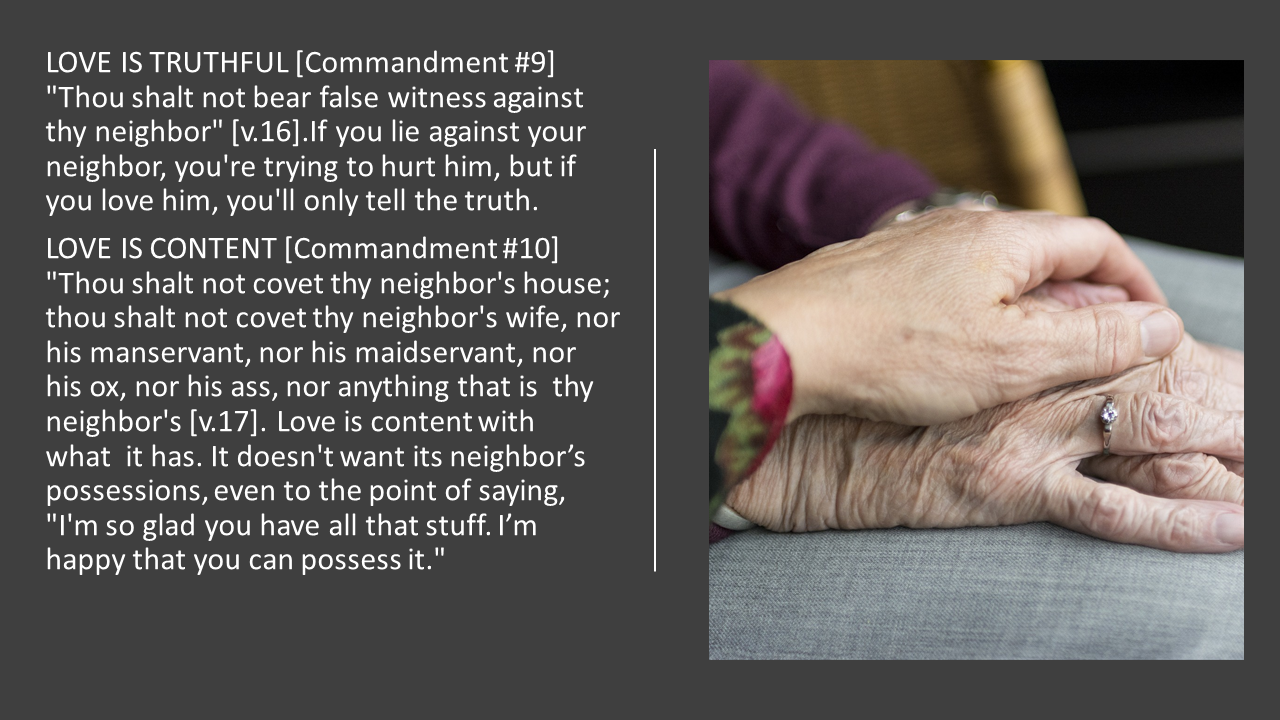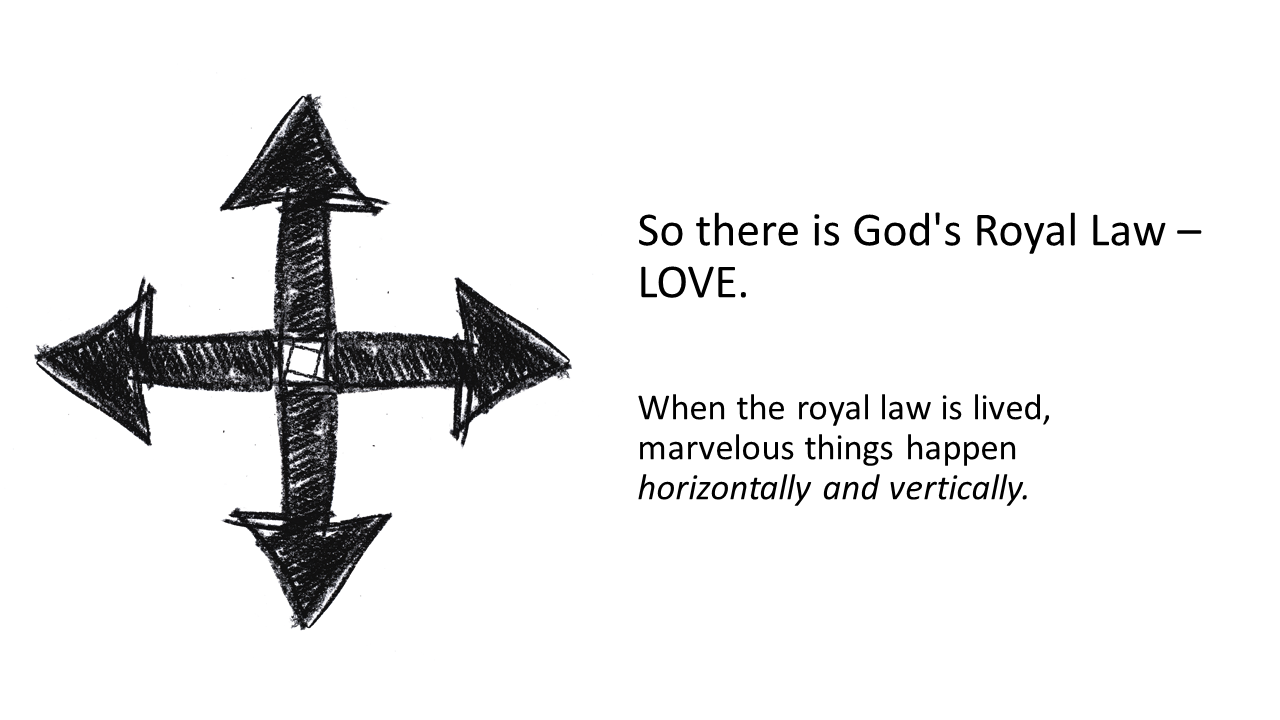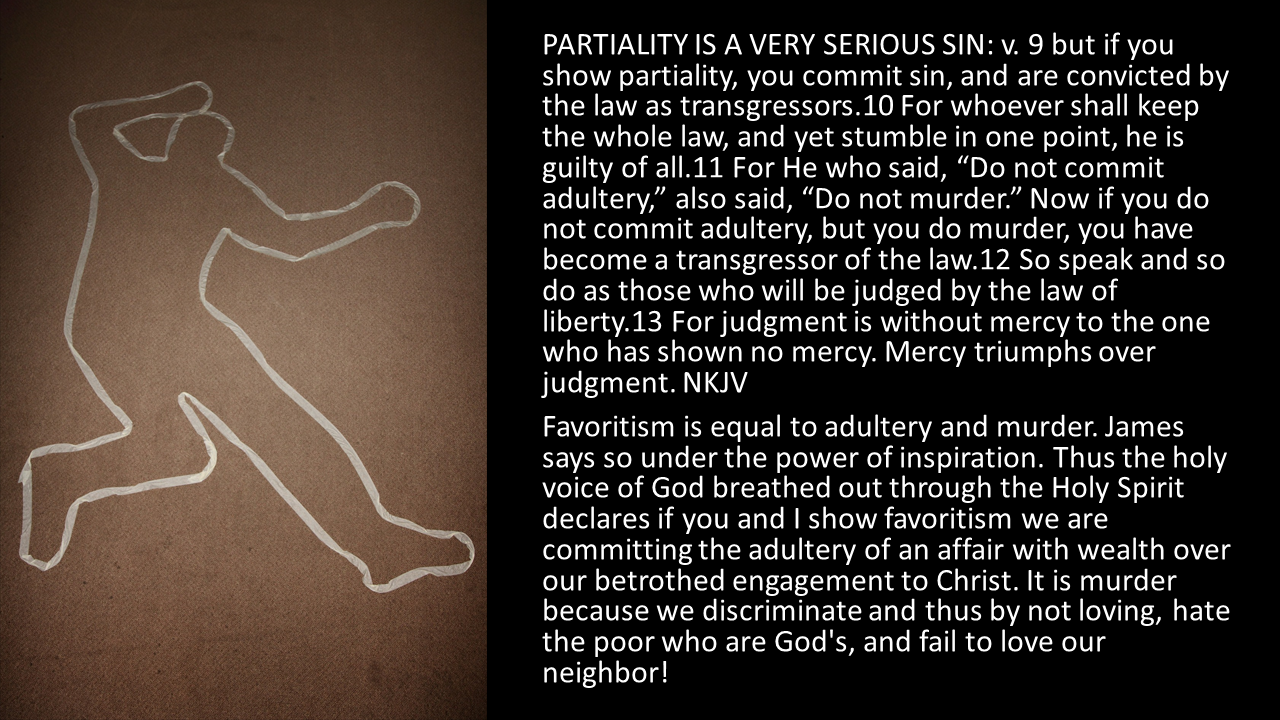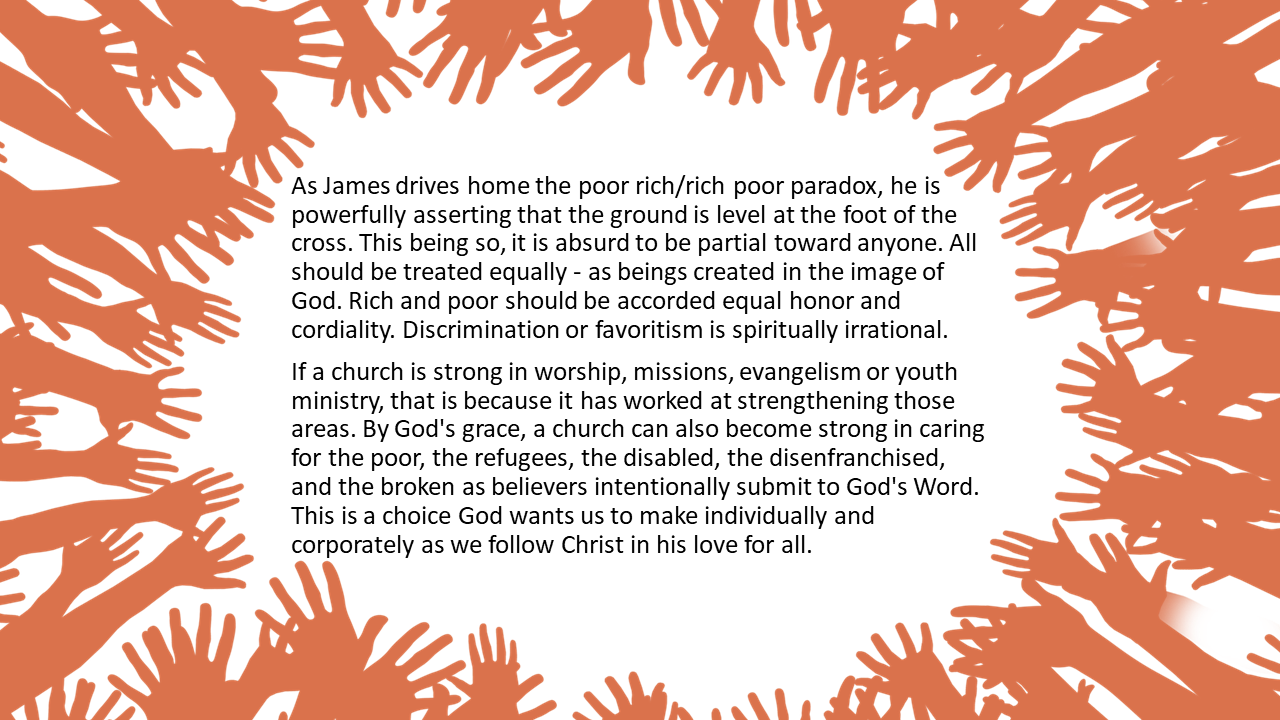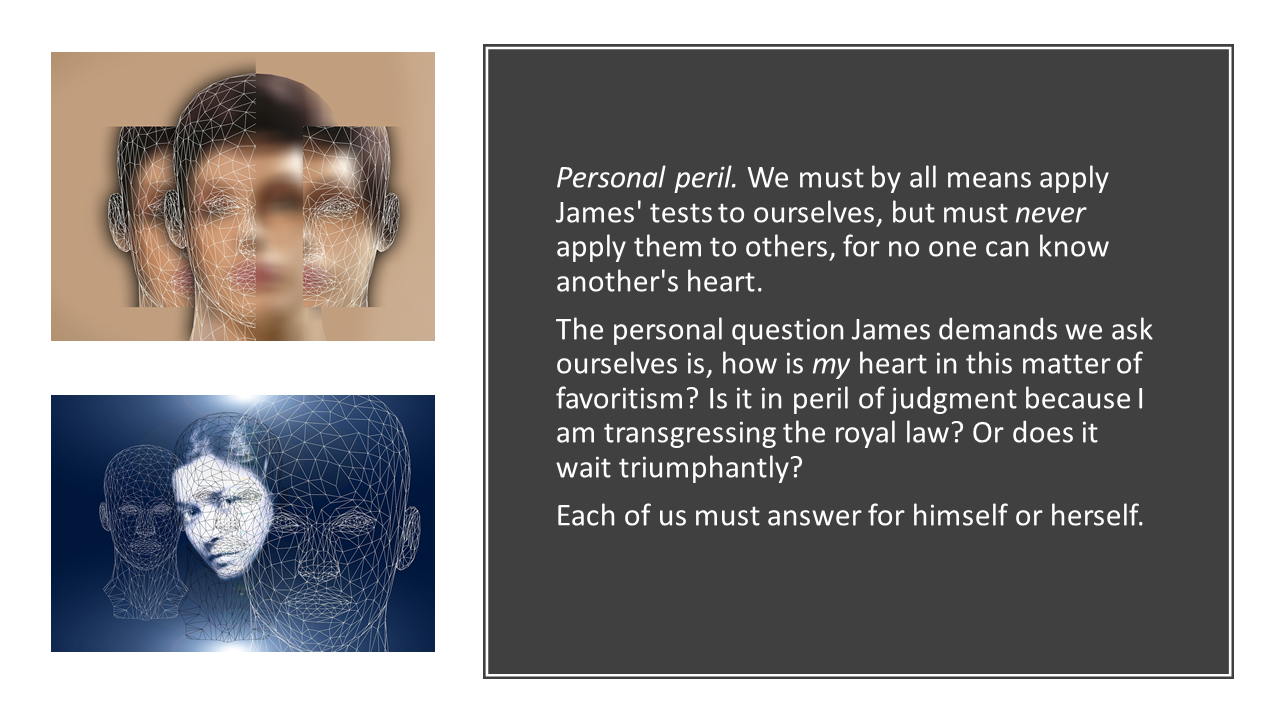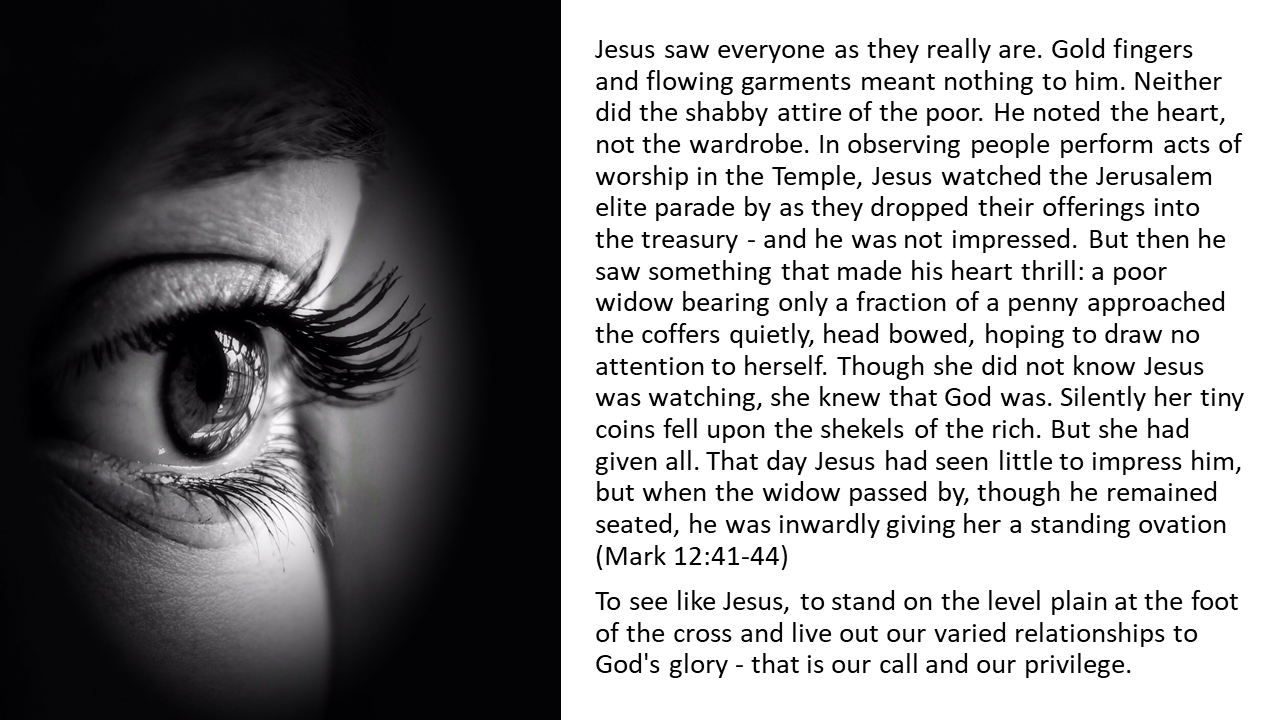Godly Impartiality
ACL-27
971228AM JAMES2.1-13
GODLY IMPARTIALITY
JAMES 2:1-13
 During1 the fall of 1775, a man who appeared to be a typical American farmer attempted to book a room in Baltimore’s most fashionable hotel. Concerned about the hotel’s reputation, the manager refused to rent the room. The man left and took a room in another hotel. Later, the manager learned he had refused a room to Thomas Jefferson, the Vice-president of the United States. Immediately he sent an invitation to Jefferson, asking him to return to his hotel as his guest. Jefferson’s response was simple and to the point.- “I value your good intentions highly, but if you have no place for an American farmer, you have no right giving hospitality to the Vice President of the United States.” That is an example of social discrimination in America.
During1 the fall of 1775, a man who appeared to be a typical American farmer attempted to book a room in Baltimore’s most fashionable hotel. Concerned about the hotel’s reputation, the manager refused to rent the room. The man left and took a room in another hotel. Later, the manager learned he had refused a room to Thomas Jefferson, the Vice-president of the United States. Immediately he sent an invitation to Jefferson, asking him to return to his hotel as his guest. Jefferson’s response was simple and to the point.- “I value your good intentions highly, but if you have no place for an American farmer, you have no right giving hospitality to the Vice President of the United States.” That is an example of social discrimination in America.
When Jesus came to live among men over nineteen hundred years ago, people did not recognize the One they met. Jesus is God, always was, and always will be. Yet it was God in the form of a man that was symbolically rejected by the innkeeper, and was later to be rejected, hated, and even crucified by His own people. That is an example of spiritual discrimination in the 1st century. When Christianity2 burst into a corrupt world with a brilliantly new moral radiance…. The moral level of society was dismal, and sin prevailed in many forms…. Into this discouraged world came Christ and his Spirit-transformed disciples, filled with holy joy, motivated by a love which the pagans could not grasp, and proclaiming Good News the message that God has provided a Savior. These Christians lived in tiny communities knit together in the power of the Holy Spirit, little colonies of heaven. They thought of themselves as pilgrims on their way to the celestial city, but they were very much concerned to manifest the love of Christ in all human relationships.
But they like us were not perfect. In our passage we study this morning we will find another test of spiritual maturity: A Maturing Walk of Faith ALLOWS no prejudice. Why would James have to address a point like that with such a radiant and powerfully spirit filled church? Because we all still live in an old clay pot. And sometimes the old master, our old Adam answers the door. When that happens we find a prejudicial, discriminatory partiality that rushes into view. Note how James addresses this problem.
James 2:1-13
¾ First, as the good pastor and loving shepherd he was, James starts with the new creations we are in Christ. He stresses our new birth
into a new family with an entirely new orientation through which we look at life — God’s !
May I call this, point #1THE INTIMACY WE SHARE – v. 1a My brethren,
Next, he goes to the very heart of the matter. The way we view others must be through the loving eyes of our new master and Lord, not through our fallen and sinful old eyes. Any partiality whether social, financial or racial is an attack on the very nature of the God of Glory who has put His word of truth (1:18) within us.
May we call this point #2 THE INCONSISTENCY WE SHOW – v. 1b do not hold the faith of our Lord Jesus Christ, the Lord of glory, with
partiality.
The word partiality is prosopon (face) lambanein (to lift up). It originally meant to look up with favor as in respect or admiration. However in the Old Testament times it began to denote a judge who altered his verdict based on the ability the accused or the accuser had to bribe him. Thus in every usage of the New Testament (Rom. 2:11;Ep. 6:9; Col 3:25) it is always negative and uncharacteristic of God and His way.
We think best in pictures so James paints one that should make us all squirm.
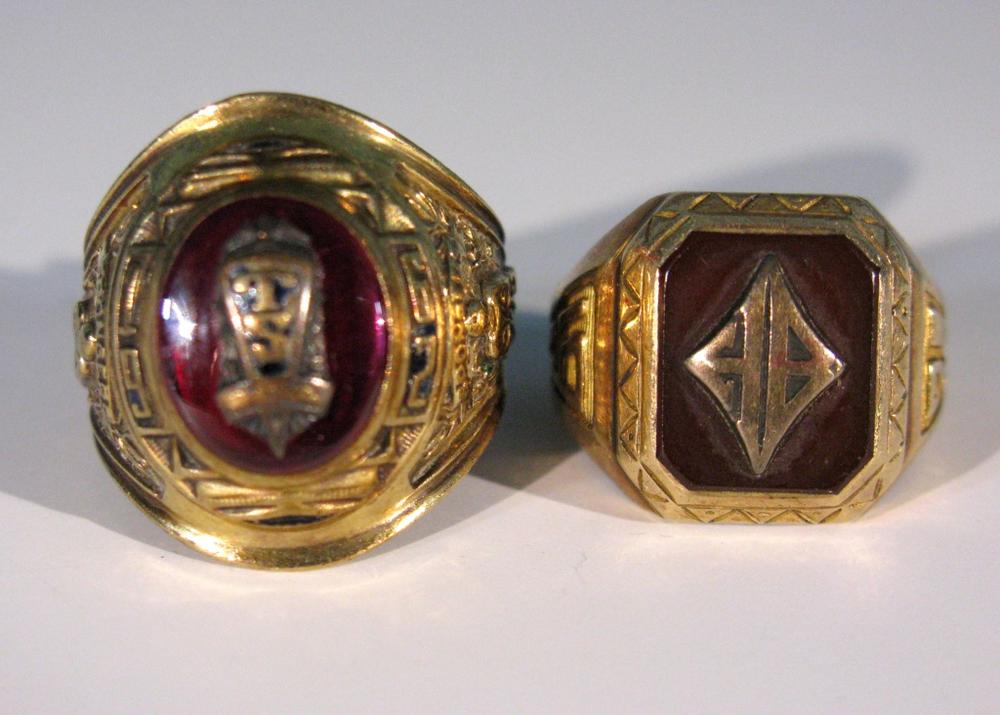 You can jot down point #3 THE ILLUSTRATION JAMES VIVIDLY SHARES v. 2 For if there should come into your assembly a man with gold rings, in fine apparel, and there should also come in a poor man in filthy clothes,
You can jot down point #3 THE ILLUSTRATION JAMES VIVIDLY SHARES v. 2 For if there should come into your assembly a man with gold rings, in fine apparel, and there should also come in a poor man in filthy clothes,
James lets us in on an event that very likely took place at the 1st church of Jerusalem. One Lord’s day they had two incredible visitors. Let’s meet them. Here comes the original Gold Finger. Circle “gold rings”, the word is chrusodaktulios “golden fingers” which was the custom of the rich Romans of that day. They would rent a gem for every joint and show their powerful wealth by a gaudy display. Today it would be gold jewelry and glittering diamonds and not just any watch but a big Rolex . . .James continues with his clothes, circle “fine apparel” this word is lampros glittering and shining” like Herod wore in Acts 10:30. In our day he would be sporting a pure white Italian tailored linen suit and hand made Gucci shoes, a broad rimmed Panama hat and a rich Caribbean tan. No one would fail to notice his entrance. ¾ But wait, before the ushers close the door another visitor is standing there. He is an absolute contrast to the 1st. “poor” is the lowest level of society, it meant beggar. His appearance is “vile raiment” which means “smelly, filthy, dirty and shabby” he wears them, works in them, sweats and is sick in the same clothes.
Look at what happens v.3 and you pay attention to the one wearing the fine clothes and say to him, “You sit here in a good place,” and say to the poor man, “You stand there,” or, “Sit here at my footstool,”.
Now James hits us hard in point #4 THE INIQUITY WE SILENTLY SHOUT v. 4 have you not shown partiality among yourselves, and become judges with evil thoughts?
There are PARTIALITY IS CONTRADICTING GOD v. 5 Listen, my beloved brethren: Has God not chosen the poor of this world to be rich in faith and heirs of the kingdom which He promised to those who love Him?
PARTIALITY IS INVITING DISASTER: v. 6 But you have dishonored the poor man. Do not the rich oppress you and drag you into the courts?7 Do they not blaspheme that noble name by which you are called? James3 argues that showing favoritism to the rich is socially irrational. James is not saying that all the rich oppressed them, for some did not, but this was the general historic experience of the Jews, as well as their present experience in the Jewish Christian dispersion. Calvin expressed the folly of showing deference to rich persecutors, commenting, “There is no reason … for men zealously to pay respect to their own executioners, and at the same time to hurt men who are on their side.”
PARTIALITY IS CONQUERED BY LOVE: v. 8 If you really fulfill the royal law according to the Scripture, “You shall love your neighbor as yourself,” you do well; The Royal Law is love. It is royal because it originates in God our King. It is Law because He commands us to love. Love fulfills all of God’s law.
 Did you know the TEN COMMANDMENTS may be reduced to how to LOVE GOD? Love has always been4 God’s standard. The Ten Commandments were nothing more than ten aspects of love, verbalized. The first four commands showed the characteristics of love toward God, and the last six showed the characteristics of love toward others. Look at Exodus 20:3-17, and I’ll show you how the Ten Commandments define love:
Did you know the TEN COMMANDMENTS may be reduced to how to LOVE GOD? Love has always been4 God’s standard. The Ten Commandments were nothing more than ten aspects of love, verbalized. The first four commands showed the characteristics of love toward God, and the last six showed the characteristics of love toward others. Look at Exodus 20:3-17, and I’ll show you how the Ten Commandments define love:
LOVE IS LOYAL [Commandment #1] “Thou shalt have no other gods before Me” [v.3]. Love is loyal, not fickle, God is just saying, “Will you love Me enough to not leave Me for some other god?” Love doesn’t make other gods or turn its back on the one, true God…it’s loyal.
LOVE IS FAITHFUL [Commandment #2] “Thou shalt not make unto thee any carved image, or any likeness of anything that is in heaven above, or that is in the earth beneath, or that is in the water under the earth; thou shalt not bow down thyself to them, nor serve them; for I, the Lord thy God, am a jealous God, visiting the iniquity of the fathers upon the children unto the third and fourth generation of them that hate Me; and showing mercy unto thousands of them that love Me, and keep My commandments” [vv.4-6]. In other words, not only is love loyal, but it is faithful. God’s saying “If you love Me, you’re not going to be fickle and leave Me, but you’re going to stand by Me.”LOVE IS REVERENT [Commandment #3] “Thou shalt not take the name of the LORD thy God in vain; for the LORD will not hold him guiltless that taketh His name in vain” [v. 7]. If you love God, you’re not going to use His name in vain…you’re not going to drag His reputation through the gutter. Why? Because love is reverent.
LOVE IS INTIMATE [Commandment #4] “Remember the sabbath day, to keep it holy. Six days shalt thou labor and do all thy work; but the seventh day is the sabbath of the LORD thy God; in it thou shalt not do any work, thou, nor thy son, nor thy daughter, thy manservant, nor thy maidservant, nor thy cattle, nor thy stranger that is within thy gates; for in six days the LORD made heaven and earth, the sea, and all that in them is, and rested the seventh day; wherefore, the LORD blessed the sabbath day, and hallowed it” [vv 8-11]. Love draws aside for intimacy. God is saying, “If you love Me, you won’t just go live your life apart from Me, you’ll draw near to Me. You’ll want to be with Me and fellowship with Me, so you’ll drop all your activities one day a week and just spend it with Me.” Love is intimate.
LOVE IS RESPECTFUL [Commandment #5]”Honor thy father and thy mother, that thy days may be long upon the land which the LORD thy God giveth thee” [v.12].Love is not lawless, nor is it rebellious — it is respectful and honoring. One of the great characteristics of love is that it always seeks to say the best about everyone. It also seeks to aid, to help, to assist, and to honor. Love is respectful.
LOVE IS HARMLESS [Commandment #6]”Thou shalt not kill” [v.13]True love would never murder another. Love is harmless…it hurts no one.
LOVE IS PURE [Commandment #7]”Thou shalt not commit adultery” [v.14]Love always seeks the purity of another. Adultery defiles but love seeks only purity.
LOVE IS UNSELFISH [Commandment #8]”Thou shalt not steal” [vs.15]Love gives, it doesn’t take. Love is unselfish.
LOVE IS TRUTHFUL [Commandment #9]”Thou shalt not bear false witness against thy neighbor” [v.16].If you lie against your neighbor, you’re trying to hurt him, but if you love him, you’ll only tell the truth.
LOVE IS CONTENT [Commandment #10]”Thou shalt not covet thy neighbor’s house; thou shalt not covet thy neighbor’s wife, nor his manservant, nor his maidservant, nor his ox, nor his ass, nor anything that is thy neighbor’s [v.17]. Love is content with what it has. It doesn’t want its neighbor’s possessions, even to the point of saying, “I’m so glad you have all that stuff. I’m happy that you can possess it.”
So there is God’s Royal Law – LOVE.
 When the royal law5 is lived, marvelous things happen horizontally and vertically. Ernest Gordon, in his book Through the Valley of the Kwai, tells of the miraculous transformation that took place among the allied prisoners in a Japanese concentration camp in 1943.
When the royal law5 is lived, marvelous things happen horizontally and vertically. Ernest Gordon, in his book Through the Valley of the Kwai, tells of the miraculous transformation that took place among the allied prisoners in a Japanese concentration camp in 1943.
In 1942 the camp was a sea of mud and filth, the scene of grueling labor and brutal treatment by Japanese guards. There was hardly any food, and the law that pervaded the whole camp was the law of the jungle: every man for himself. Twelve months later the ground of the camp was cleared and clean. The bamboo bed slats had been debugged. Green boughs had been used to rebuild the huts, and on Christmas morning 2,000 men were at worship. What had happened? During the year a prisoner had shared his last crumb of food with another man who was also in desperate need. Then he died. Among his belongings they found a Bible. Some who witnessed his ultimate act of love wondered, could that Bible be the secret of willingness to give sacrificially to others? One by one the prisoners began to read it. Soon the Spirit of God began to grip their hearts and change their lives, and in a period of less than twelve months there was a spiritual and moral revolution within that camp.’ The royal law lived out had done its work.
PARTIALITY IS A VERY SERIOUS SIN: v. 9 but if you show partiality, you commit sin, and are convicted by the law as transgressors.10 For whoever shall keep the whole law, and yet stumble in one point, he is guilty of all.11 For He who said, “Do not commit adultery,” also said, “Do not murder.” Now if you do not commit adultery, but you do murder, you have become a transgressor of the law.12 So speak and so do as those who will be judged by the law of liberty.13 For judgment is without mercy to the one who has shown no mercy. Mercy triumphs over judgment. NKJV
Favoritism is equal to adultery and murder. James says so under the power of inspiration. Thus the holy voice of God breathed out through the Holy Spirit declares if you and I show favoritism we are committing the adultery of an affair with wealth over our betrothed engagement to Christ. It is murder because we discriminate and thus by not loving, hate the poor who are God’s, and fail to love our neighbor!
Jeremiah 7:6 “if you do not oppress the stranger, the fatherless, and the widow, and do not shed innocent blood in this place, or walk after other gods to your hurt. NKJV
1 John 3:15-18 Whoever hates his brother is a murderer, and you know that no murderer has eternal life abiding in him. 16 By this we know love, because He laid down His life for us. And we also ought to lay down our lives for the brethren.17 But whoever has this world’s goods, and sees his brother in need, and shuts up his heart from him, how does the love of God abide in him?18 My little children, let us not love in word or in tongue, but in deed and in truth. NKJV
As James6 drives home the poor rich/rich poor paradox, he is powerfully asserting that the ground is level at the foot of the cross. This being so, it is absurd to be partial toward anyone. All should be treated equally – as beings created in the image of God. Rich and poor should be accorded equal honor and cordiality. Discrimination or favoritism is spiritually irrational. If a church is strong in worship, missions, evangelism or youth ministry, that is because it has worked at strengthening those areas. By God’s grace, a church can also become strong in caring for the poor, the refugees, the disabled, the disenfranchised, and the broken as believers intentionally submit to God’s Word. This is a choice God wants us to make individually and corporately as we follow Christ in his love for all.
Personal peril. We must by all means7 apply James’ tests to ourselves, but must never apply them to others, for no one can know another’s heart. The personal question James demands we ask ourselves is, how is my heart in this matter of favoritism? Is it in peril of judgment because I am transgressing the royal law? Or does it wait triumphantly? Each of us must answer for himself or herself.
 Corporate peril. There is a particular corporate application for any church which is made up of educated, upwardly mobile people. It is so easy for today’s affluent church to practice an urbane, omni-smiling favoritism which offers a brighter fraternal smile to well-dressed professionals and a cordial but less enthusiastic greeting to the less favored or troubled. Such subtle discrimination may defy human detection, but God always sees it. And if it is practiced long enough it can eviscerate a church even while its walls stand and its spires point symbolically to Heaven.
Corporate peril. There is a particular corporate application for any church which is made up of educated, upwardly mobile people. It is so easy for today’s affluent church to practice an urbane, omni-smiling favoritism which offers a brighter fraternal smile to well-dressed professionals and a cordial but less enthusiastic greeting to the less favored or troubled. Such subtle discrimination may defy human detection, but God always sees it. And if it is practiced long enough it can eviscerate a church even while its walls stand and its spires point symbolically to Heaven.
Jesus saw8 everyone as they really are. Gold fingers and flowing garments meant nothing to him. Neither did the shabby attire of the poor. He noted the heart, not the wardrobe. In observing people perform acts of worship in the Temple, Jesus watched the Jerusalem elite parade by as they dropped their offerings
into the treasury – and he was not impressed. But then he saw something that made his heart thrill: a poor widow bearing only a fraction of a penny approached the coffers quietly, head bowed, hoping to draw no attention to herself. Though she did not know Jesus was watching, she knew that God was. Silently her tiny coins fell upon the shekels of the rich. But she had given all. That day Jesus had seen little to impress him, but when the widow passed by, though he remained seated, he was inwardly giving her a standing ovation (Mark 12:41-44). To see like Jesus, to stand on the level plain at the foot of the cross
and live out our varied relationships to God’s glory – that is our call and our privilege.
1 Towns, What the faith is all about, p. 161.
2 J. C. Wenger wrote of the early church, “Evangelical Social Concern,” in Baker Dictionary of Christian Ethics, ed. Carl F. H. Henry [Grand Rapids: Baker, 1973], pp. 223-24.
3 Hughes, James, p. 104.
4 Drawn from MacArthur’s Manifesto of Love.
5 Hughes, James, p. 99.
6 Hughes, James, p. 93-94.
7 Hughes, James, p. 104.
8 Hughes, James, p. 93-94.
Slides
Check Out All The Sermons In The Series
You can find all the sermons and short clips from this series, Authentic Christian Living – James here
Looking To Study The Bible Like Dr. Barnett?
Dr. Barnett has curated an Amazon page with a large collection of resources he uses in his study of God’s Word. You can check it out here.


